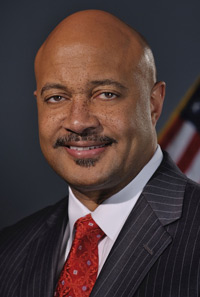Indiana Attorney General Curtis Hill this week asked the U.S. Supreme Court to review and reverse a lower court’s decision declaring unconstitutional certain provisions of Indiana law regarding abortion and the disposal of fetal remains.
Signed into law in March of 2016 by then-Governor Mike Pence, House Enrolled Act 1337 contained two requirements that are at issue in this case.

Hill
First, the law required clinics and/or other healthcare facilities in possession of aborted or miscarried fetuses to dispose of them either by cremation or interment. Second, HEA 1337 prohibited doctors from performing discriminatory abortions based solely on the race, sex or disability of the child. The Seventh U.S. Circuit Court of Appeals ruled that the non-discrimination provision imposed an undue burden on the right to obtain abortions and the fetal disposition provision fulfills no legitimate government objective – even though, with regard to disposal of fetal remains, the Eighth U.S. Circuit Court of Appeals has found a virtually identical provision in Minnesota to pass constitutional muster.
“Nothing in the Constitution prohibits states from requiring health facilities to provide an element of basic human dignity in disposing of fetuses,” Hill said. “These tiny bodies, after all, are in fact human remains. Further, states have every reason and right to prohibit abortions from being performed simply as a means of selecting the race, sex, or physical condition of a child. The right to abortion declared by our Supreme Court protects only the decision not to bear a child at all, not a right to decide which child to bear. Our nation knows only too well the bitter fruits of such discrimination.”
Bolstering Indiana’s case that these questions warrant review by the nation’s highest court is the fact that the Seventh Circuit initially approved a request by Hill for an en banc review of the matter – that is, a hearing before all 11 of the court’s judges in regular active service rather than a three-judge panel from the court. After that approval, however, one judge recused himself from the case, resulting in the court vacating its order for the en banc review.
Click here to view Indiana’s petition filed with the U.S. Supreme Court.
